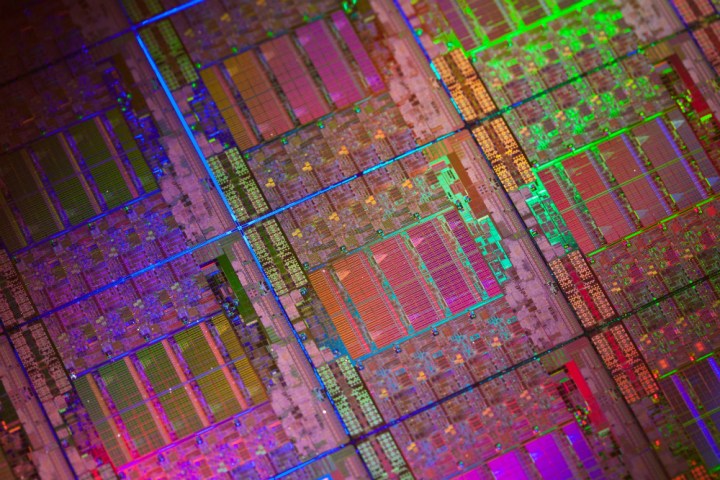
The news came via a post on the Anandtech forums, which included an image of a slide that shows off the next generation of Intel processors. These would be based on the LGA-2066 architecture, and if valid, would create a strong lineup of high-end desktop CPUs, Techspot reports.
According to the image, the new Core i9 designation would refer to four different chips ranging from the Core i9-7800X up to the Core i9-7920X. These chips would have a minimum of six cores and 12 threads and would range in speed from a 3.5GHz base and 4.0GHz Turbo 2.0 up to an undisclosed maximum speed. Between 28 and 44 PCIe lanes would be supported and the thermal design power (TDP) would run at a scorching 140 watts.
The image is a little difficult to read and so here are all of the specifications for the upcoming high-end Skylake-X and Kaby Lake-X processors:
| Processor | Cores/ Threads |
Base Clock/ Turbo (GHz) |
PCIe Lanes |
RAM | TDP |
| Core i7-7640K (Kaby Lake-X) | 4/4 | 4.0/4.2 | 16 | 2 X DDR4-2666 | 112W |
| Core i7-7740K (Kaby Lake-X) | 4/8 | 4.3/4.5 | 16 | 2 X DDR4-2666 | 112W |
| Core i9-7800X (Skylake-X) | 6/12 | 3.5/4.0 | 28 | 4 X DDR4-2666 | 140W |
| Core i9-7820X (Skylake-X) | 8/16 | 4.3/4.5 | 28 | 4 X DDR4-2666 | 140W |
| Core i9-7900X (Skylake-X) | 10/20 | 3.3/4.5 | 44 | 4 X DDR4-2666 | 140W |
| Core i9-7920X (Skylake-X) | 12/24 | TBD | 44 | 4 X DDR4-2666 | 140W |
Clearly, Intel is looking to maintain its dominance at the high-end of the desktop CPU market and it is not hesitating to push the power envelope while it is at it. While the new chips show a launch date starting in June, with the most powerful Core i9-7920X slated to launch in August, we do not have pricing information yet. There is no doubt, however, that this level of performance will not be what most people define as “affordable.”



